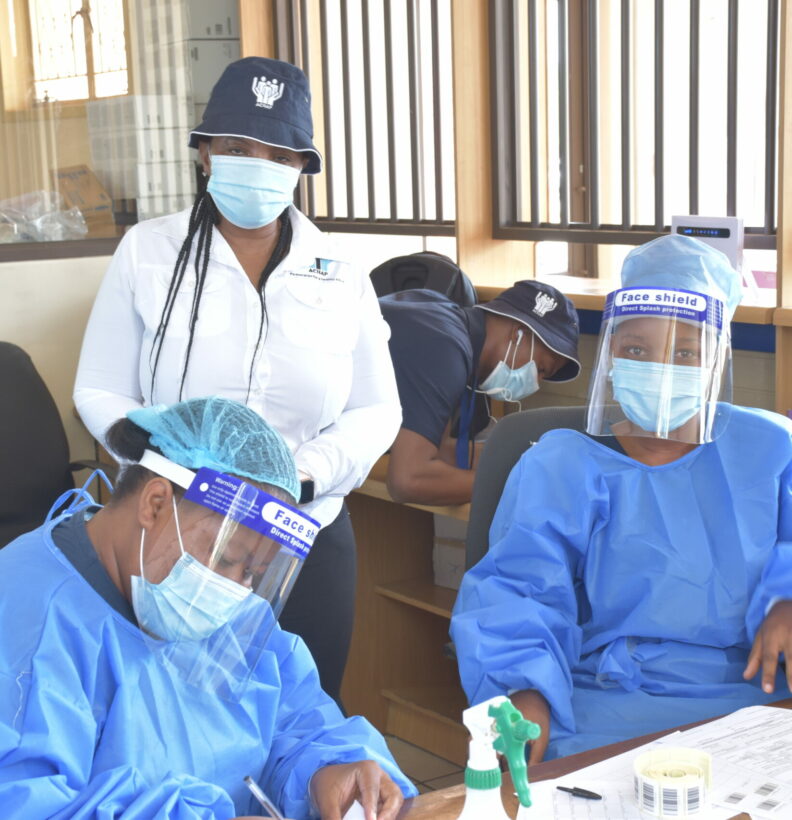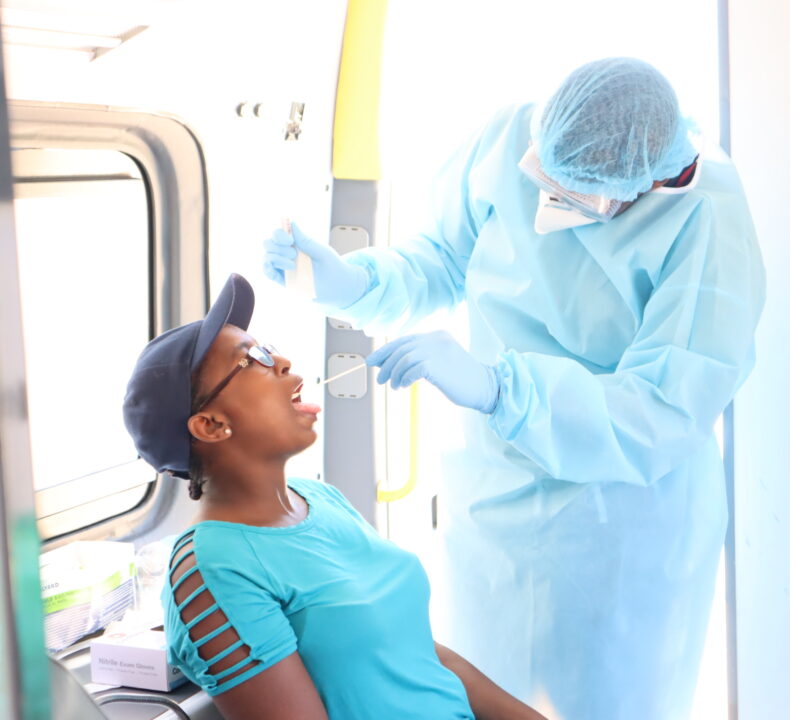

The World Health Organization declared the COVID-19 a pandemic on 11th March 2020. Different countries then adopted different strategies in their endeavour to contain the virus. Any intervention’s success is dependent on the level of available information about the disease modalities of spread, prevalence of the disease, rate of infection and subsequent mortality levels among those infected.
His Excellency the President of the Republic of Botswana Dr. Mokgweetsi Eric Masisi a state of public emergency for the purpose of taking appropriate and stringent measures to address the risks posed by the COVID-19 pandemic. The president also stated that whilst the state of public emergency is in place, there shall also be “extreme social distancing commencing on April 2, 2020 at midnight for a period of 28 days” because it is in the best interest of the nation.
ACHAP with BUMMHI, BOCAIP, University of Botswana supported District Health Management Teams (DHMT) conduct Contact Tracing in the villages of Molepolole, Metsimotlhabe, Ramotswa, Mahalapye, Bobonong and Siviya where there were confirmed cases. Teams from above-mentioned organisations were to provide a comprehensive contact tracing response targeted at closely monitoring and supporting isolation of potential imported and locally transmitted cases through community education for the general public and intensified education for high risk groups and districts.
Contact tracing which is an integral component of the overall strategy for controlling an outbreak of COVID 19 virus is defined as the identification and follow-up of persons who may have come into contact with an individual confirmed to be having COVID 19 (a case). Contacts must be systematically identified and monitored closely for 14 days following possible exposure to ascertain infection. The objectives of the contact tracing, was to rapidly identify and close down chains of transmission of COVID-19, linkage contact to care and management, slow the progress of the COVID-19 epidemic in Botswana to avoid overburdening the health system and finally assess COVID-19 incidence in hotspot areas.
The exercise in the Greater Gaborone DHMT area started with fumigation and disinfection of the following areas in Metsimotlhabe; Regent Hill School, Choppies, Saverite, Top Centre Butchery, Field Butchery, Clinic, Shell and Puma filling stations. The Engen filling in Mmopane was included in the exercise where as in Mogoditshane only Fours and Chicken Licken were disinfected. A total of were screened whereas 760 Secondary contacts were identified and swabbed(tested) with no positive results. The exercise successful contact tracing mainly due to community leadership engagement, timely risk communication and community involvement by the Health Promotion department, visible leadership from DHMT and good collaboration between national contact tracing, district contact tracing and partners.
Contact tracing was immediately followed by Active case-finding that requires systematic screening and clinical evaluation of persons who are at high risk of developing COVID 19, such as people who are contacts of someone who is COVID 19 case (suspected, probable or confirmed). The use of active case-finding assumes that: groups at high risk for COVID 19 are clearly defined procedures to screen and assess individuals belonging to these groups are well established, and Health professionals and community workers who should be involved in implementing these procedures have been clearly identified and capacitated.
In Greater Gaborone area screening of people with flu like symptoms and essential service workers; truck drivers, Health workers (Metsimotlhabe Clinic) & Point of Entry staff (BURS, Immigration and Police) was conducted. A total of 334 people were screened, tested(swabbed) with no positives.



Add comment